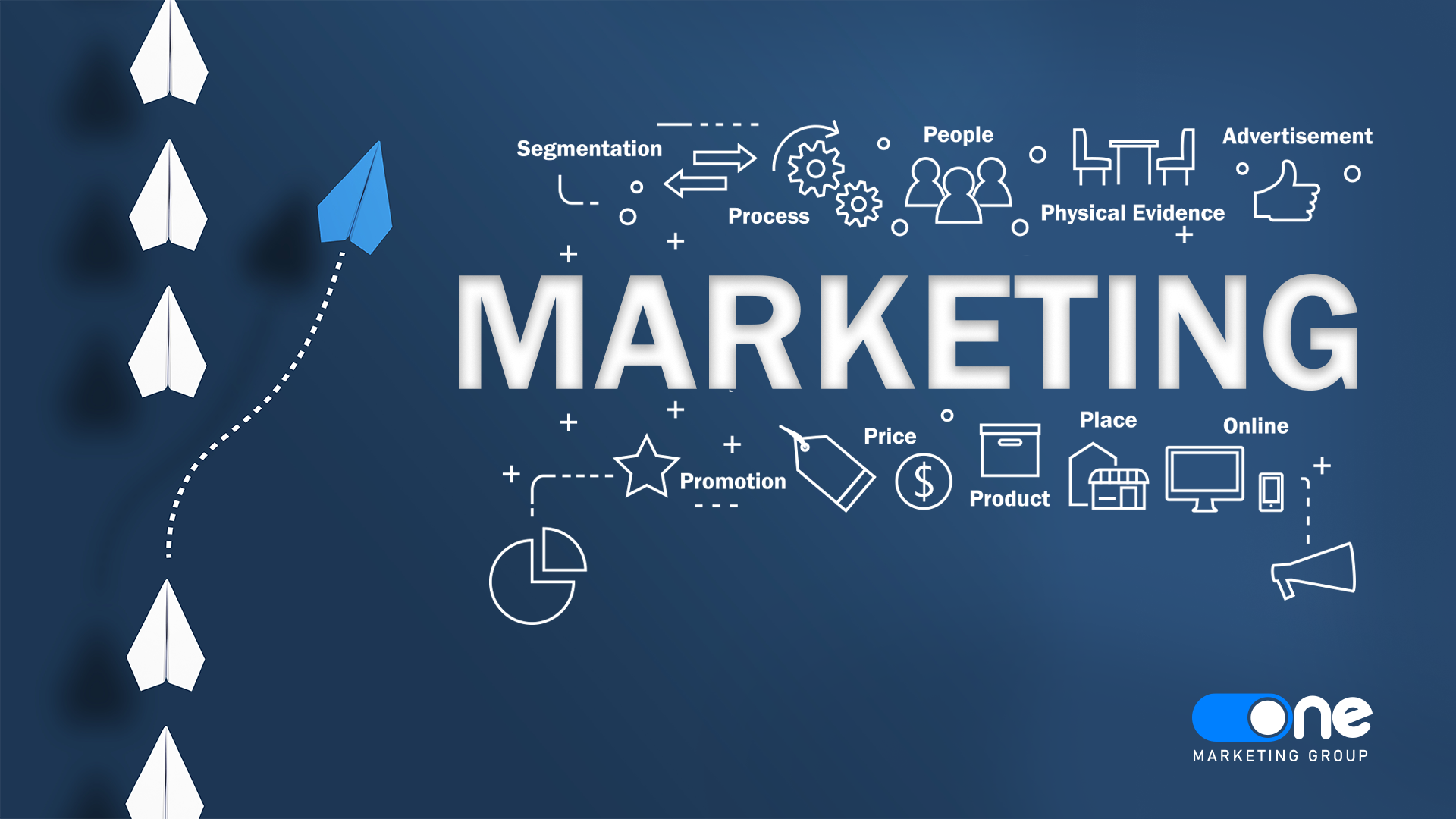
The Purpose of Advertising: Driving Growth and Connection
- [email protected]
- October 16, 2024
- Blogs
- 0 Comments
What is the Purpose of Advertising?
In today’s competitive marketplace, businesses rely on advertising to promote their products and services. But what is the true purpose of advertising? Beyond merely selling products, advertising serves multiple functions that can significantly impact a business’s success. In this blog post, we will explore the various purposes of advertising, from building brand awareness to driving sales and fostering customer loyalty. At One Marketing Group, we understand the multifaceted nature of advertising and its importance in achieving business goals.
Understanding the Core Purposes of Advertising
Building Brand Awareness
One of the primary purposes of advertising is to build brand awareness. This is especially crucial for new businesses or those launching new products. When people recognize and remember a brand, they are more likely to consider it when making purchasing decisions.
Creating Recognition and Recall
To begin with, effective advertising strategies aim to create brand recognition. This can be achieved through consistent messaging, visuals, and branding across various platforms. For instance, companies like Coca-Cola and Nike have established strong brand identities that consumers can easily recall. Their advertisements often feature consistent themes, colors, and slogans, making them instantly recognizable.
Establishing a Brand Identity
Additionally, advertising helps establish a brand’s identity. Through creative storytelling, businesses can communicate their values, mission, and personality. For example, brands that emphasize sustainability in their advertising can attract environmentally conscious consumers. In this way, advertising goes beyond simply promoting a product; it shapes how consumers perceive the brand itself.
Driving Sales and Conversions
Another fundamental purpose of advertising is to drive sales and conversions. Effective advertising campaigns can lead to increased revenue, which is ultimately the goal of most businesses.
Creating Urgency and Demand
To drive sales, advertisements often create a sense of urgency. Limited-time offers, promotions, and exclusive deals motivate consumers to take action quickly. For instance, an advertisement for a “flash sale” can prompt potential customers to make a purchase before the opportunity expires. By emphasizing scarcity, businesses can effectively stimulate demand and boost sales.
Targeting Specific Audiences
Moreover, advertising allows businesses to target specific audiences based on demographics, interests, and behaviors. By tailoring messages to particular groups, companies can create more relevant and compelling ads. For example, a luxury car brand may target affluent consumers with ads highlighting exclusivity and status. This targeted approach increases the likelihood of conversions, as the message resonates with the intended audience.
Fostering Customer Engagement
Advertising also plays a vital role in fostering customer engagement. In an era of information overload, engaging advertisements capture attention and encourage interaction with the brand.
Encouraging Interaction and Feedback
Engaging advertisements invite customers to interact with the brand, whether through social media, contests, or surveys. For example, a brand may encourage users to share their experiences with a specific product using a designated hashtag. This interaction not only boosts brand visibility but also creates a sense of community among consumers.
Enhancing Customer Relationships
Furthermore, effective advertising fosters stronger customer relationships. By providing valuable content and solutions to customer pain points, businesses can position themselves as trusted resources. For instance, a financial service company that offers educational content through its ads can build credibility and trust with its audience. As a result, customers are more likely to choose that brand when seeking financial services.
The Role of Advertising in Market Competition
Differentiating from Competitors
In a saturated market, advertising helps businesses differentiate themselves from competitors. With numerous options available, consumers often rely on advertising to guide their purchasing decisions.
Highlighting Unique Selling Propositions (USPs)
To effectively differentiate, businesses must clearly communicate their unique selling propositions (USPs). What sets them apart from others in the market? Effective advertising emphasizes these USPs, making it easier for consumers to understand why they should choose one brand over another. For example, a skincare company may highlight its use of organic ingredients as a key differentiator in its advertising.
Establishing Market Positioning
Moreover, advertising helps establish market positioning. By defining how a brand fits into the market landscape, businesses can attract their desired target audience. For instance, a brand positioning itself as an affordable option will create advertisements that appeal to budget-conscious consumers. This strategic positioning helps businesses carve out a niche in the competitive market.
Building Customer Loyalty and Retention
Advertising is not solely about acquiring new customers; it also plays a crucial role in building customer loyalty and retention. Engaging existing customers is essential for long-term business success.
Reinforcing Brand Loyalty
Through consistent and positive advertising, businesses can reinforce brand loyalty among existing customers. Advertisements that remind customers of their positive experiences with a brand can keep them engaged and loyal. For instance, a coffee shop may use loyalty program ads to remind customers of their rewards, encouraging repeat visits.
Encouraging Repeat Purchases
Furthermore, advertising can encourage repeat purchases by showcasing new products or promotions tailored to existing customers. For example, an e-commerce brand may send targeted ads featuring items related to a customer’s previous purchases. This personalized approach increases the likelihood of conversions and fosters customer retention.
Adapting to Changing Consumer Behaviors
As consumer behaviors evolve, so too must advertising strategies. Understanding the changing landscape is essential for effective advertising.
Responding to Trends and Preferences
Advertising allows businesses to respond to emerging trends and changing consumer preferences. For instance, the rise of social media influencers has transformed the advertising landscape. Brands can leverage influencer partnerships to reach wider audiences and align with trends that resonate with consumers. By adapting to these shifts, businesses can stay relevant and effective in their advertising efforts.
Utilizing Data and Analytics
Moreover, advertising provides valuable data and insights that help businesses refine their strategies. Analyzing consumer behavior, engagement metrics, and campaign performance allows businesses to make data-driven decisions. By continually optimizing advertising efforts, businesses can enhance their effectiveness and maximize returns on investment.
Conclusion
In summary, the purpose of advertising extends far beyond simply promoting products and services. It serves multiple functions, including building brand awareness, driving sales, fostering customer engagement, differentiating from competitors, and enhancing customer loyalty. As businesses navigate the ever-changing landscape of advertising, it is crucial to understand these core purposes and adapt strategies accordingly.
At One Marketing Group, we recognize the vital role advertising plays in achieving business goals. Whether you’re looking to enhance your brand’s visibility, drive conversions, or foster customer relationships, our team of experts is here to help you succeed. Contact us today to learn how we can assist you in crafting an effective advertising strategy that aligns with your business objectives.
By understanding and leveraging the diverse purposes of advertising, businesses can create more impactful campaigns that resonate with consumers and drive growth. In an increasingly competitive market, effective advertising will remain a cornerstone of business success for years to come.




